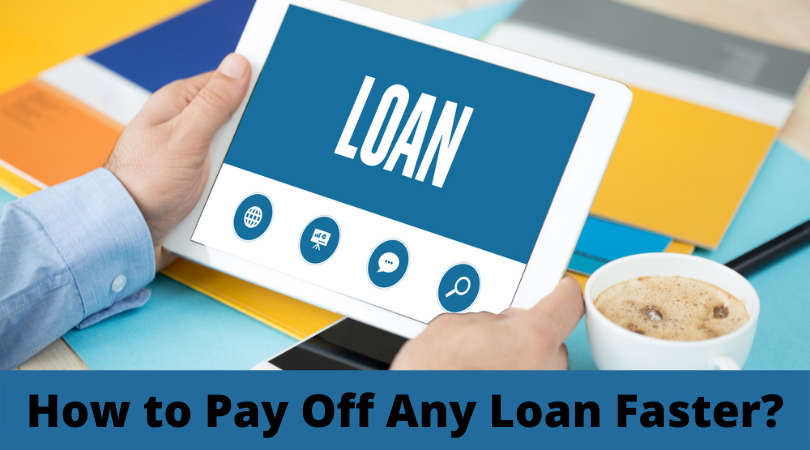 Be sure to use the following guidelines to pay off any loan faster:
Be sure to use the following guidelines to pay off any loan faster:
- Do not take new loans. No matter how paradoxical this phrase may sound, but it is new loans that do not make it possible to pay off previous loans. A person falls into a kind of financial trap: in order to pay debts, he is forced to withdraw money from the card, sign agreements in other banks. It is very difficult to find a way from this financial trap. That is why it is important when signing a contract to clearly determine what share of the total income can be freely given as payment for the loan. If you go beyond this limit, debt will begin to increase daily. Take a piece of paper and write down in detail your debt and the period for which this amount can be repaid without resorting to new loans.
- Increase your monthly payment. At first glance, this is not easy to do. But try to calculate how much you will save on interest payments if you close the debt ahead of schedule. If it is possible to use extra sources to pay off the loan, use everything that is available.
- Look at the annual amount to estimate the overpayment under the contract on a large-scale basis. Indeed, in general, bank managers when applying for a loan specifically break down the total debt by months. This is a marketing ploy that allows them to attract the client. In this case, the loan amount is announced immediately. Thus, the borrower has the impression that the overpayment on the loan is insignificant, which means that there is no need to rush to pay it off. Before calculating the amount to increase your monthly payment, contact your bank employee. You need to find out how early repayment is carried out; are there any hidden fees and penalties for early repayment; whether it is necessary to sign an application for early payment; what day of the month the payment should be made, etc. All these factors can significantly affect the formation of the final amount. Often, the agreement contains hidden payments and sanctions for early full or partial repayment of the debt. It is unprofitable for the bank when the client closes the loan account ahead of time, so many companies go to all sorts of tricks to prevent this.
- Find an additional source of income. This could be: part-time job; extra shifts; temporary seasonal earnings; one-time project; sale of unnecessary things, etc. This activity does not have to be related to the main profile and specialization. In spring and summer, unskilled workers are constantly required for cleaning summer cottages, harvesting crops, trimming bushes, etc. In winter, this can be tutoring, cleaning apartments, construction and repair work, tailoring and freelancing. You should not get discouraged and consider this period as a heavy financial bondage. Be clear about the time you need to close your debt. Key point: strictly ensure that funds from extra earnings are spent exclusively on paying off the debt on the loan. Determine how much you can shorten this period if you make monthly, in addition to the mandatory payment. Such calculations are very motivating and help to form a clear strategy for further actions.
- Reduce costs as much as possible. It is important to realize that it will not be possible to pay off all loans without reducing costs. Analyze all your income, expenses and leave only the essentials: nutrition; utility bills; fare; payment for studies. Here you need to be as honest as possible and clearly define what you can temporarily refuse in favor of a quick loan repayment. During this period, avoid shopping, online shopping, sales and make a rational but economical meal plan. This should also include getting rid of expensive habits (alcohol, cigarettes, morning latte on the way to work, lunch with employees in a cafe, Friday nights with friends). So you can realistically assess how important these expenses are for you and whether they can be avoided. Remember that these are only temporary harsh measures that will help you get out of debt.
- Snowball method. This method is fit for those who have several loan agreements at once. These can be consumer and non-targeted loans, credit cards, etc. Make a list of all debts and determine the order of their repayment. Try to close all small amounts right away in order to minimize the number of agreements. Firstly, it will ensure psychological relief and allow you to see a way out of a difficult financial situation. Secondly, it will help you save money. Small loan interest rates are generally the highest. Due to the small amount, the borrower does not pay attention to this and, as a result, returns the debt to the bank in the almost double amount. After closing all small loans and credit cards, you can proceed to paying off large amounts.
- Debt refinancing. This method will not completely free you from repaying the loan. But it will allow you to avoid property and financial liability, get rid of the payment of fines and conclude an agreement on more favorable terms.
Category: General